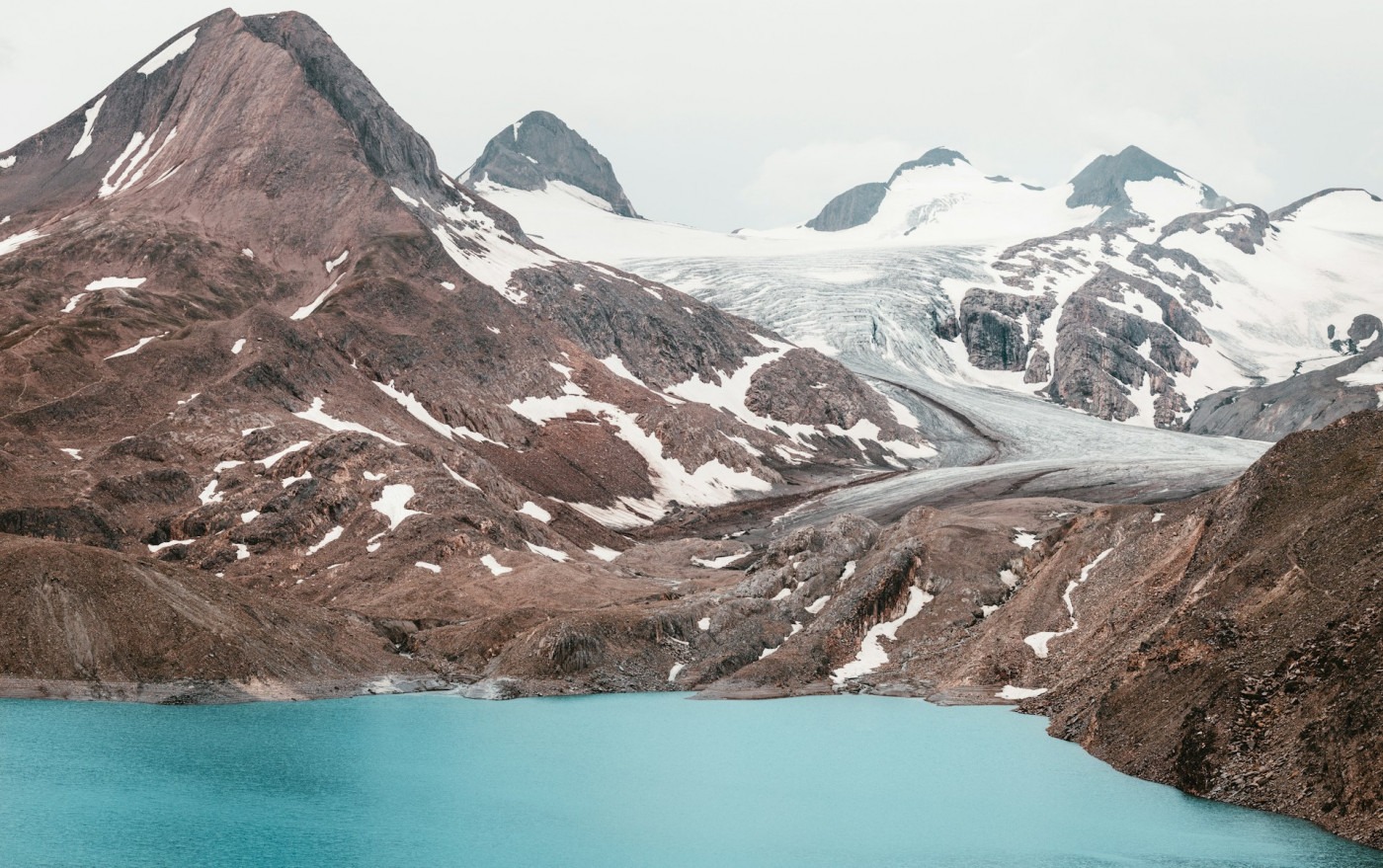Border meltdown between Switzerland and Italy as climate change shrinks glaciers
Switzerland and Italy have redrawn their shared border due to the unprecedented melting of Alpine glaciers. Parts of the Italian-Swiss border were originally defined by glacier ridge lines, but as these glaciers shrink due to global warming, both countries have now been forced to adjust their long-established boundaries.
Affected is the famous Matterhorn Peak, one of the highest summits in the Alps known for its scenic beauty and as a popular skiing and hiking destination. The peak sits between Switzerland’s Zermatt region and Italy’s Aosta Valley. As the glaciers beneath the Matterhorn recede, the border between these regions has shifted along the shrinking ridgeline. This shift could have a significant economic impact on Zermatt, which relies heavily on tourism, welcoming over two million visitors annually.
According to Glacier Monitoring Switzerland, glacier volume shrank by 4.4% in 2023, far exceeding the average annual loss over the past decade.
Swiss Glaciers Melting at Record Rates
Swiss glaciers have been receding at an alarming rate in recent years. According to Glacier Monitoring Switzerland (GLAMOS), glacier volume shrank by 4.4% in 2023, far exceeding the average annual loss over the past decade. The previous year saw an even greater decline, with the country losing 5.9% of its glacier volume in 2022 – the highest ever recorded.
Amid growing concerns, Switzerland and Italy drafted an agreement in May 2023 to revise the border in areas where glaciers have significantly shrunk. This agreement has now been ratified by Switzerland late September 2024 but awaits formal approval from Italy. The Swiss government highlighted the necessity of this adjustment, stating, “With the melting of the glaciers, these natural elements evolve and redefine the national border”. This boundary adjustment underscores the broader impact of climate change on geopolitics, as changing landscapes challenge long-standing borders.
Beyond Borders: Climate Change’s Other Effects on the Alps
Beyond political implications, the Alps also face other climate-related issues such as landslides, freshwater shortages, and rising sea levels. In 2022, tragedy struck when 11 people died following a glacier collapse in the Italian Alps, highlighting the deadly risks associated with the rapid glacier melt.
Ironically, the melting glaciers have also led to some unusual benefits. As the ice retreats, archaeological finds and the remains of missing people are being discovered. On July 12, 2023, climbers discovered the remains of a German hiker who had been missing since 1986. As glaciers continue to melt, such discoveries are becoming more frequent, so hikers are being encouraged to use the “IceWatcher” app to report findings. This has already helped uncover artefacts, including ancient tools and a plane wreckage that had been buried in ice.
The shifting borders between Switzerland and Italy remind us that climate change is not just an environmental issue, but one with deep political, social, and economic implications worldwide.
The Wider Issue of Melting Glaciers
It becomes evident that borders cannot shield us from the most pressing global threat – climate change. The melting of glaciers is a worldwide crisis with far-reaching consequences. A 2023 study revealed that even under the ideal scenario of limiting warming to 1.5°C, we would still lose about half of the world’s glaciers (compared to 2015 figures). In the worst-case scenario of 4°C, as much as 83 percent of glaciers could disappear. Currently, we are on track for 2.7°C of warming.
Mass deglaciation would have profound effects on life as we know it. Rising sea levels threaten coastal areas with flooding, land loss, and the displacement of millions. Glacial decline alongside rising sea levels endangers biodiversity and unique ecosystems. Water shortages hit communities reliant on glacial meltwater for drinking, agriculture, and hydropower, leading to food insecurity and economic instability. Key industries like tourism will suffer, further impacting economies. Politically, glacial retreat will continue shifting borders and escalate tensions, as seen in the contested Hindu Kush Himalaya region between China and India.
Ultimately, the shifting borders between Switzerland and Italy remind us that climate change is not just an environmental issue, but one with deep political, social, and economic implications worldwide.
At a UN seminar on climate change, Italian President Sergio Mattarella stated, “For too long, we have dealt in an inadequate manner with the issue of the safeguard of the environment and of climate change.” His concern stresses the need for improved international collaboration and effective strategies to address climate challenges.

Comments